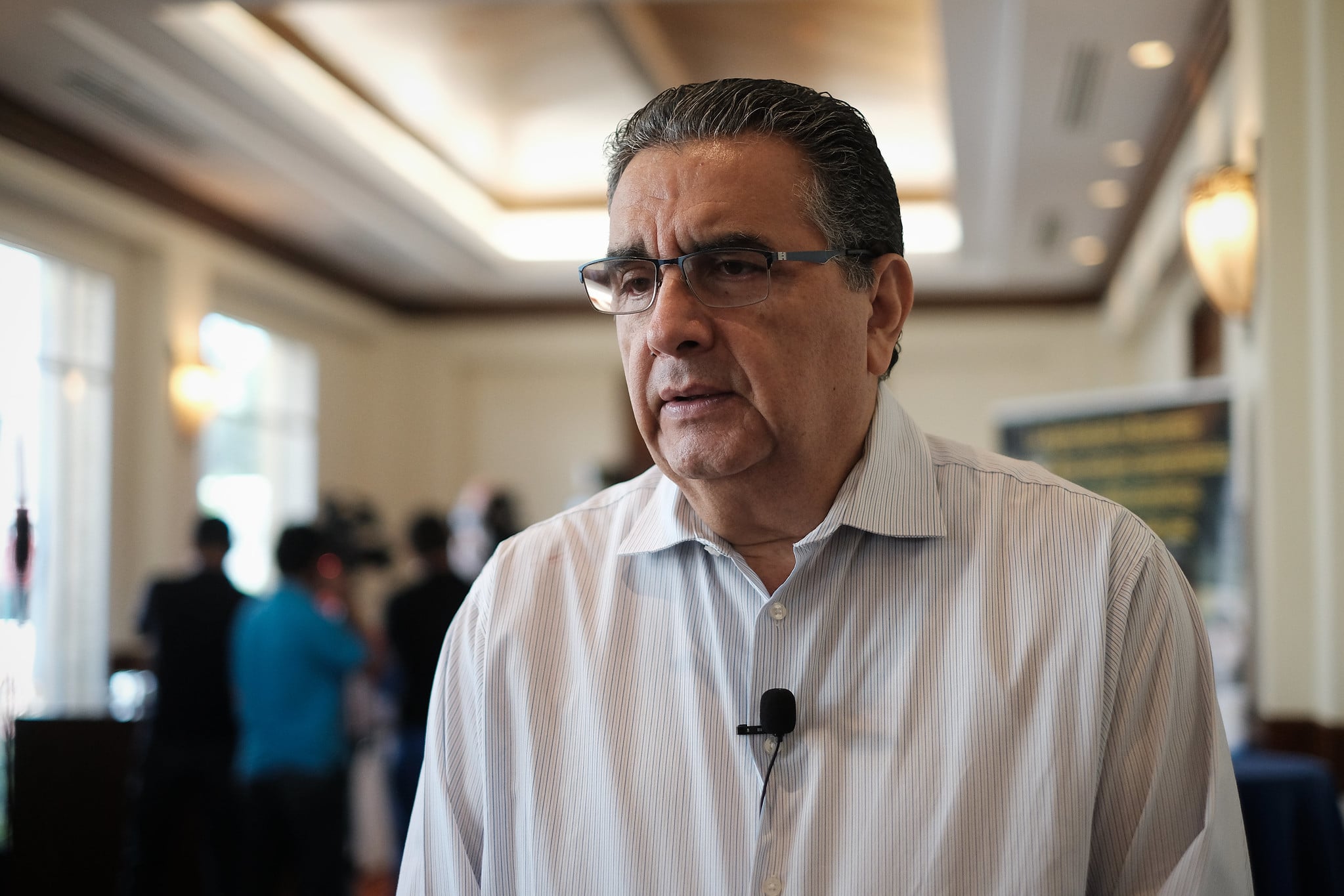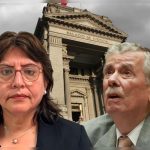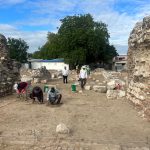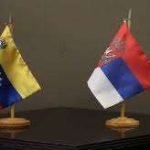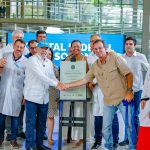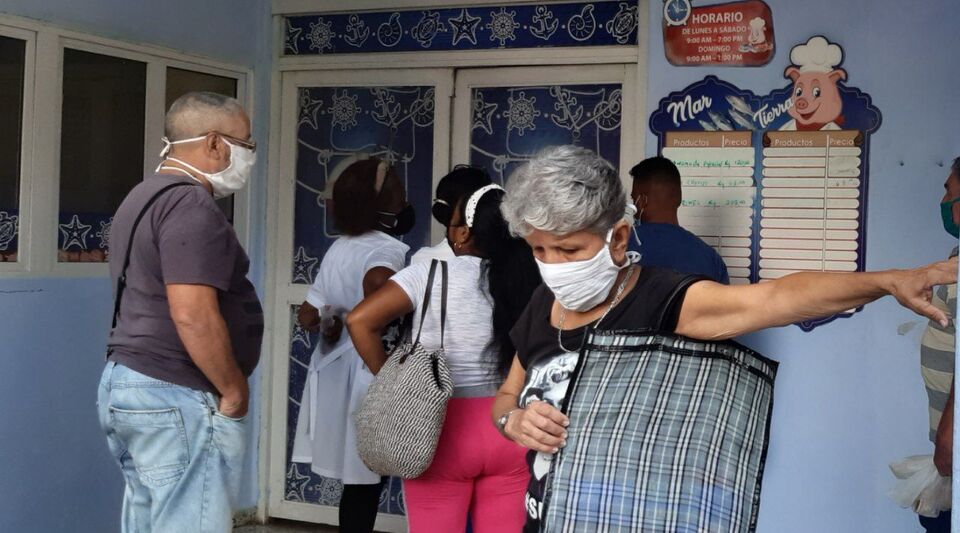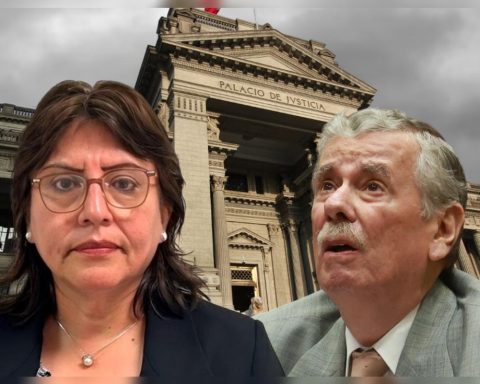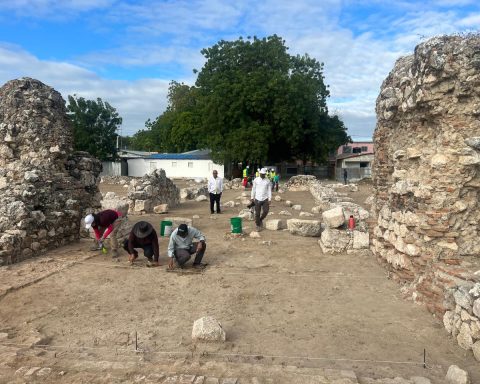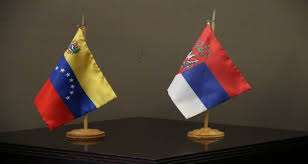The conditions for an eventual dialogue that translates into the freedom of prisoners of conscience and the beginning of a democratization process in Nicaragua are, for now, practically null, according to the professor and education expert, Ernesto Medina, who participated in the failed attempts at National Dialogue with the Daniel Ortega regime that took place in 2018 and 2019.
The main reason for this current scenario, according to Medina, are similar to the reasons why which the previous two dialogues failed: A clear lack of political will on the part of Ortega to seek a way out of the socio-political crisis and the absence of a guarantor with the political weight and firmness to enforce the agreements signed in hypothetical negotiations.
Medina is one of the few negotiators who participated in both talks who is not imprisoned by Ortega. The former professor recalled in an interview on the program Tonight-broadcast on YouTube and Facebook Live due to the regime’s censorship- as during the two failed dialogues, the regime through its representatives dedicated itself to obstructing the proposals for political changes that sought to guide the country towards democratization.
“The problem with previous experiences with dialogue is that we went without really having the right technical conditions. It was not clear, especially in the first dialogue, who was going to participate on the part of the Government. Every day different characters arrived from the Government, so that we were not clear about the true representativeness of that delegation,” Medina recalled.
This dialogue derailed after the bishops of the Episcopal Conference, who acted as mediators, put on the table the proposed agenda referring to the constitutional changes necessary to agree on in the talks to achieve the democratization of Nicaragua.
“The government spoke of dialogue only on the first day. But later, when Foreign Minister Denis Moncada Colindres saw the document that the bishops had left on the table, with the proposed agenda that had resulted from work done by the two delegations, he picked up the paper and said that it was a recipe for a coup. In other words, the recipe for a coup d’état, according to him, was a document that clearly stated what the constitutional steps are to find a way out of the crisis. That dialogue died there,” Medina recalled.
Ortega never had an interest in solving crises
In the second attempt at dialogue in 2019, promoted by the Catholic Church and big capital, the conditions of these talks were similar to those of 2018. There was no clarity about the agenda of these negotiations and it was evident that Ortega was not interested in discussing the most urgent issues for the population, such as the demand for justice for the crimes committed during the 2018 protests, lifting the police state imposed by the regime to control citizen discontent, and putting the country back on track towards a democratic system.
Unlike 2018, these talks did materialize in signed agreements. The signatory on behalf of the regime was Foreign Minister Moncada Colindres. Also present at these talks were the Vatican representative in Nicaragua, Apostolic Nuncio Waldemar Stalisnaw Sommertag and the delegate of the Organization of American States, Luis Ángel Rosadilla. However, Ortega ignored the signed agreements and did not comply with anything established in them.
Almost three years after these talks, one of the events of these negotiations that most disturbed Medina was precisely the role that Rosadillas and the Apostolic Nuncio had in the negotiations.
“What was not clear in the dialogue was the role of (Luis Ángel) Rosadillas and the Apostolic Nuncio himself. As a representative of the Vatican, it was not clear whether he had the full backing of the papal authority and what his quality was. For the Civic Alliance, they were guarantors; for the Government, they were witnesses. The results of these talks showed that they were not guarantors of anything, because the agreements on paper were very nice, important and interesting, but none were fulfilled and the Nuncio and Mr. Rosadilla did not have any authority to enforce them”, reflected Medina .
Exchange tokens for economic issues
It is based on this experience that for Medina, speaking of dialogue with Ortega in the current conditions, with the regime involved in political trials with which he seeks to condemn the kidnapped prisoners of conscience in the context of the 2021 votes, makes no sense.
“I understand the pain of the families of political prisoners, many of whom are my friends, but under these conditions I do not see any possibility of dialogue. Ortega has no interest in talking with them, because we all know that Ortega negotiates when he feels against the wall and when he has something to gain and here, the families of political prisoners have absolutely nothing to offer that interests Ortega.” , he claimed.
Relatives of more than 30 political prisoners sued, at the end of January, the annulment of the trials and the unconditional release of all prisoners of conscience. In this way, they joined a previous statement, in which another group of relatives appealed for the support of “rulers, living forces of the nation and the (Catholic) Church” so that they “lead” a “citizen unification process”, highlighting that the release of prisoners of conscience would serve “as a kind of liberation shared by all Nicaraguans.”
“The dialogue that Ortega has been proposing is about economic issues. In this case, the political prisoners would be what has always been said that we do not want them to be, in exchange for talking about economic issues that interest Ortega, such as removing the sanctions and returning to the arrangement they had before with the private sector”, added Medina.
Following the communications of the relatives of the political prisoners, the Superior Council of Private Enterprise (Cosep)which had been silent since September 2021, supported the demand for the freedom of prisoners of conscience, and announced its willingness in favor of a national dialogue “without preconditions”, in the midst of the worst crisis of legitimacy of the Ortega regime, which previously announced meetings with different economic sectors, without mentioning Cosep.
Under this scenario, Medina believed that great care should be taken to ensure that this willingness to negotiate with Ortega does not become an oxygen valve for the regime, which is currently facing a problem of political legitimacy after the electoral farce of November 7, 2021.
“An eventual dialogue continues to be the way out of a crisis as serious as the one we have. It has to be a technically well-prepared and impartial dialogue. Organize the agenda in advance, define the participants and their dynamics. At least talk beforehand about what you want to discuss, because if Ortega arrives without knowing what he wants to discuss, when we talk about democratizing Nicaragua, he says again that we are once again organizing a coup d’état and that’s it We are not going to do anything at all,” he said.
The silence of the Apostolic Nuncio and the Pope
Medina questioned the passive role in this context of sociopolitical crisis on the part of the Apostolic Nuncio and Pope Francis himself, mainly with regard to the attacks and harassment they have suffered. priests of the Catholic Church by the shock forces and mobs of the regime.
“As a Catholic, I am very sorry for that silence. I think that silence has become a tombstone for Nicaragua. I regret that the Pope does not even have a voice of encouragement, of consolation, for the suffering of so many people in Nicaragua. With the authority that we know the Pope has, it shouldn’t cost him anything to speak loudly to Nicaragua and say, ‘Gentlemen, this barbarity cannot continue.’ When the Pope or the Nuncio himself remain silent when priests are offended in a vulgar manner and do not come to their defense, they leave much to be desired,” Medina pointed out.
